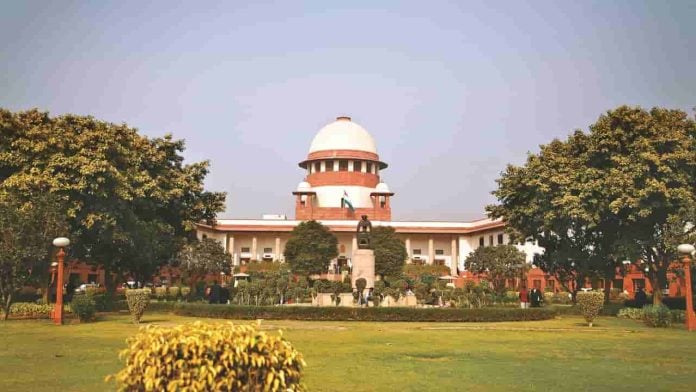The Supreme Court on Tuesday dismissed a petition filed by Delhi Deputy Chief Minister Manish Sisodia, challenging his arrest by the Central Bureau of Investigation (CBI) over his alleged involvement in irregularities related to the now-scrapped Delhi Excise Policy.
The Bench of Chief Justice of India (CJI) D.Y. Chandrachud and Justice P.S. Narasimha told Sisodia that he had alternative remedies available before the High Court, which he should have pursued, instead of directly invoking the jurisdiction of the Supreme Court under Article 32 of the Constitution.
The CJI told Senior Advocate Abhishek Manu Singhvi, who appeared for Sisodia, that the petitioner was challenging an FIR, challenging remand and seeking bail, all under Article 32 of the Constitution.
The CJI observed that if it decided to take up this petition, the Apex Court would be asked to interfere in every such case. He added that the top court of the country could not intervene in this.
Justice Narasimha said that the case should not come to the Supreme Court, just because the incident took place in Delhi.
The Senior Counsel, while referring to the cases of journalists Arnab Goswami and Vinod Dua, said that Article 32 could be invoked for bail in exceptional circumstances.
The CJI replied that Goswami was a case, which came to the Supreme Court after the High Court, while Vinod Dua was a case relating to FIRs against a journalist for making critical reports.
Singhvi further placed reliance on the Jagisha Arora case verdict, wherein the Apex Court had allowed bail to journalist Prashant Kanojia in a writ petition filed against a remand order.
He argued that in the present case, the remand was not at all warranted, since the offence attracted a maximum punishment of seven years, there was no flight risk in the case and also because the Delhi Cabinet Minister had complied with all the summons issued so far to him.
The Senior Counsel contended that the remand was sought on the ground that Sisodia was not cooperating. He asked whether cooperation meant that one should waive the right against self-incrimination.
When the CJI asked him why these arguments could not be raised before the Delhi High Court, Singhvi replied that the roster judge of the Delhi High Court was not holding sittings on most days as he was involved with the work as UAPA Tribunal in the PFI case.
Earlier on Monday, Special CBI Judge M.K. Nagpal of the Rouse Avenue Court had sent Sisodia to five days CBI remand in connection with his alleged involvement in the now-scrapped Delhi Excise Policy.
Appearing for CBI, Special Public Prosecutor (SPP) Pankaj Gupta sought custody of Sisodia till March 4, arguing that investigation had revealed that Sisodia verbally directed the Secretary to put a new Cabinet note to bring about the change and variance in the policy.
Gupta said the Deputy Chief Minister was heading the Group of Ministers constituted by the Cabinet for the Excise Policy. The profit margin was enhanced from five percent to 12 percent. Sisodia could not explain why the changes were made, he added.
The Central Bureau of Investigation (CBI) had arrested Sisodia in connection with the liquor policy scam on Sunday, after questioning him for eight hours.
CBI said it had arrested Sisodia on the basis of some documents and digital evidence, along with destruction of evidence.


